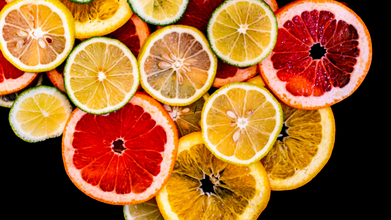- Health Conditions A-Z
- Health & Wellness
- Nutrition
- Fitness
- Health News
- Ayurveda
- Videos
- Medicine A-Z
- Parenting
7 Home Ingredients That Instantly Help To Rid Of Indigestion

7 Home Ingredients That Instantly Help To Rid Of Indigestion
Indigestion, or dyspepsia, is a common condition many people experience after eating or drinking. While your favorite foods may tantalize your taste buds, indulging too quickly or in excess can bring discomfort. Symptoms like bloating, nausea, gas, burping, or a burning sensation in your upper stomach can make you feel uneasy. It is not a disease but a symptom of some underlying gastrointestinal issues, such as ulcers, gastritis, or acid reflux.
Instead of rushing to purchase over-the-counter antacids, you may be amazed at how much natural remedies and small lifestyle changes can alleviate. This article explores ways that are effective in controlling indigestion and dives deeper into some lesser-known tips to keep your digestive system healthy. What Is Indigestion?
Indigestion means feeling uncomfortable or pain inside the upper part of the abdomen shortly after eating. While there are times that indigestion is just normal; continuous symptoms might indicate further illness.
Some common things which trigger this kind of sensation are:
- Rush eating
- Consuming large food portions
- Fatty foods
- Spicy food
- Stress or anxiety condition
- Medication like non-steroidal anti-inflammatory drug
Symptoms of Indigestion
- Discomfort or feeling fullness following consumption
- Upper stomach burning sensation
- Bloating
- Burping or gas
- Nausea
Quick and Easy Home Remedies
The following are some of the natural remedies to help cure indigestion using common kitchen ingredients:
1. Apple Cider Vinegar
Apple cider vinegar is one of the popular remedies for digestive issues. It is believed to boost the production of stomach acid, thus helping in digestion.
How to Use: Take 1-2 teaspoons of raw, unpasteurized ACV in a glass of water and consume it 30 minutes before meals.
Caution: Avoid excessive intake as it may cause erosion of teeth or throat irritation.
2. Fennel Seeds
Fennel seeds are highly rich in antispasmodic properties and can relieve gastrointestinal issues such as cramping, bloating, and nausea.
How to Use: Boil ½ teaspoon of crushed fennel seeds in water for 10 minutes to prepare tea. Alternatively, chew fennel seeds post-meal for relief.
Caution: Overuse may lead to nausea or sensitivity to sunlight.
3. Baking Soda
Baking soda neutralizes excess stomach acid, offering quick relief from indigestion and bloating.
How to Use: Dissolve ½ teaspoon of baking soda in 4 ounces of water and drink it within two hours of a meal. Limit usage as this may disrupt your body's natural pH balance.
4. Ginger
Ginger balances stomach acid levels and reduces inflammation, thus a great remedy for low and high stomach acid causing indigestion.
How to Use: Put slices of fresh ginger into the water and boil; serve with honey or lemon according to taste.
5. Chamomile Tea
There is a lot of attention lately on the calming properties of this drink, which also tends to reduce inflammation in the gastro-intestinal tract.
How to Use: Steep in boiling water one or two tea-bags of chamomile tea; drink at ease as needed for relief.
Caution: Check with a doctor if you are taking blood thinners, since chamomile may cause interaction with the latter.
6. Licorice Root
Licorice root calms spasm of muscles and irritation in the gut, thus helping symptoms of GERD and gastritis.
How to Use: Chew or make into tea for symptomatic relief.
7. Carom Seeds
A staple in Indian homes, carom seeds are a Ayurvedic remedy that is loaded with thymol for improved digestion and reduction in bloating.
How to Use: Chew on small amounts of carom seeds post meal or brew them into a tea for quick relief.
Lifestyle Changes for Long Term Relief
In addition to the above remedies, consider adopting some lifestyle changes to prevent the recurrence of indigestion frequently:
1. Eat Smaller Meals: Large meals can overwhelm your digestive system. Opt for smaller, more frequent portions.
2. Avoid Trigger Foods: Identify and limit foods that commonly cause discomfort, such as spicy or high-fat dishes.
3. Stay Hydrated: Drink water throughout the day to aid digestion.
4. Manage Stress: High stress levels can exacerbate indigestion. Practices like yoga or meditation may help.
5. Do Not Lie Down Within Two Hours After Meal: Allow enough time to allow for good digestion; be upright after meals.
Gut-Brain Axis Role in Indigestion
This is the unexplored link between the gut and brain with indigestion. Gut and brain connect by a system of nerves, hormones, and signals. Whenever these nerves and hormones are influenced by stress or anxiety due to an emotional reason, gastrointestinal discomfort develops.
How to Utilize the Gut-Brain Connection for Optimal Digestion
- Eat mindfully: Concentrate on the food, chew properly, and avoid any other stimuli at the time of consumption. It is simple but really beneficial for optimal digestion.
- Yogurt, kefir, and fermented foods ensure the preservation of a good gut microbiome.
- Cognitive Behavioral Therapy (CBT): If stress-induced indigestion is a chronic problem, consider CBT to manage anxiety and improve your overall well-being.
Indore Food Contamination: 6 People Hospitalized In Bhagirathpura

Credits: Canva
Not too long ago, Indore made headlines in water contamination case where a 67-year-old woman, identified as Parvati Bai Kondla also showed signs of Guillain-Barré syndrome. Bacteria like E coli. and Klebsiella were found in the water sample of Bhagirathpura, the epicentre of water contamination.
Indore's Bhagirathpura is again on the news, this time for food contamination.
Also Read: Woman Lost Weight On Mounjaro But Her Breasts Didn't Stop Growing, This Is Why...
Indore Food Contamination: What Happened?
Six people have been admitted to a hospital after they consumed contaminated food in Bhagirathpura. At a birthday party in Bhagirathpura on a late Saturday night, 60 people ate the food and some of them developed health problems. Chief Medical and Health Officer (CMHO) Dr Madhav Hasani stated on Monday.
Bhagirathpura was the epicentre of water contamination that claimed 22 lives earlier. The minister said that affected individuals were treated and as a precaution, six of them were admitted to the Government Maharaja Yashwantrao Hospital.
Indore Municipal Corporation Commissioner Dilip Kumar said, “We have found that in case of the construction of the toilet, no safety tank was constructed beneath it. We are also probing the other lapses.”
As per the official statement, all patients are doing well after the treatment.
Indore Food Contamination: What Happened In Indore Before?
Earlier in January, Mayor Pushyamitra Bhargav reported that due to lapses in civic infrastructure. Investigation revealed that a toilet constructed directly above a main drinking pipeline near a police outpost, without a mandatory safety tank resulted in the sewage mixing with drinking water.
Read: Sewage Mixing With Drinking Water Kills 7 in Madhya Pradesh’s Indore, Over 100 Remain Hospitalized
Speaking to The Indian Express, Indore Municipal Corporation Commissioner Dilip Kumar said, “We have found that in case of the construction of the toilet, no safety tank was constructed beneath it. We are also probing the other lapses.”
What Is E. Coli Bacteria?
Escherichia coli, commonly known as E. coli, refers to a group of bacteria that naturally live in the intestines of humans and animals. Most of these strains are harmless and even play a role in digestion. However, certain types can trigger illness when they enter parts of the body where they do not belong or release harmful toxins.
These disease-causing strains attach themselves to body cells and produce toxins, leading to infection and inflammation.
What Is Guillain-Barré syndrome?
Guillain-Barré syndrome is a rare autoimmune condition in which your immune system attacks your peripheral nerves, leading to symptoms like numbness, tingling, and muscle weakness that progress to paralysis. However, with treatment, most people fully recover from the condition.
Doctors say GBS occurs at any age, but it most commonly affects people between 30 and 50 years of age.
Guillain-Barré syndrome is rare. About 100,000 people worldwide develop GBS every year. To put that into perspective, the world population is about 7.8 billion. That means healthcare providers diagnose GBS in about 1 in 78,000 people each year.
Horlicks Controversy: Why Is This Popularly Branded 'Health' Drink Suddenly Under The Scanner In Odisha

Credits: ANI and Horlicks Website
Branded as a health drink, Horlicks has come under the scanner in Odisha as the government raised alarm over the growing incidence of food adulteration. On Monday, Odisha's Health Minister Mukesh Mahaling revealed that adulterated batches of Horlicks were seized from multiple districts. He raised serious concerns over food safety across the state.
This came in the backdrop of Congress MLA Tara Prasad Bahinipati asking for clarification on reports of food adulteration. The attention was focused on the everyday food products consumed by households.
Also Read: Fact Check: Should You Change Your Underwear In Every 6 Months?
Horlicks Controversy: Adulteration In 'Health' Drink

Mahaling responded to MLA Bahinipati's query in the Assembly and said that batches of Horlicks have been seized from Baugh and Dhenkanal districts. Furthermore, other reports of confiscation also came form Jagatsinghpur and Mayurbhanj.
Officials have conducted inspections and seized suspect stock during routine checks, however, the Minister did not specify the exact quantity of the adulteration involved, neither the nature of adulteration was revealed.
This has triggered concerns among the consumers who are parents of young children and elderly citizens who regularly rely on health drinks like Horlicks for nutritional supplements.
Horlicks Controversy: Adulteration In Other Food Items
The Minister said that adulteration is not just limited to packaged health drinks, but has affected a wide range of commonly consumed food items:
- Chhena
- Curd and milk
- Bread
- Spices
- Chhatua
- Sauces
- Soybeans
- Ghee
- Salt
- Sugar
- Papad
- Chocolate
- Maida
As per the Health Department, some samples were found to contain harmful and toxic substances, and severe levels in Khurda district. The Health Minister said that the department has intensified inspections, raids and enforcement measures to curb the malpractice and safeguard public health.
Read: Bacteria Found in Amul Milk Pouches, Officials Urge Pasteurization
'Health' and 'Nutritional' Drink Controversy Case Study
In 2023-24, a controversy on Bournvita, which is marketed as a health drink began when influencer Revant Himatsingka of Food Pharmer alleged in a viral video that the drink contained excessive sugar, which is approximately 50 per cent by the weight. He also said that the drink contained harmful additives and that it contradicted from the marketing of it as a health drink.
Afterwards, a legal notice was sent to Mondelez-owned Cadbury and Bournvita reduced its added sugar content by 14.4 per cent and faced regulatory orders to remove the "health drink" tag from its packaging.
These Fruits Have The Least Sugar In Them

Credits: Canva
Trying to cut back on sugar does not mean you have to give up fruit. Many people assume fruits are automatically “too sugary,” especially if they taste sweet. In reality, quite a few fruits are naturally low in sugar while still packed with fiber, vitamins and hydration. The trick is choosing wisely.
Here are some delicious fruits that satisfy your sweet tooth without sending your sugar intake soaring.
Citrus Picks That Barely Have Any Sugar
If your goal is minimum sugar, citrus fruits are a great place to start.
Lemons and limes top the list. They are intensely sour for a reason. A lime contains roughly 1 gram of sugar and a lemon about 2 grams. Add them to water, salads or chutneys for flavor without sweetness overload.

Grapefruit is another excellent option. Half a grapefruit has just around 10 grams of sugar and works perfectly as a refreshing breakfast fruit.
Oranges taste sweet but are still moderate in sugar. One medium orange contains about 14 grams along with a strong dose of vitamin C, making it a far better snack than packaged juice.
Berries: Naturally Sweet And Light On Your Body
Berries are among the best fruits for people watching blood sugar.
Raspberries have just over 5 grams of sugar per cup and a lot of fiber, which helps you feel full longer.

Strawberries come next. A full cup contains about 7 grams of sugar and more vitamin C than many citrus fruits.
Blackberries also sit at roughly 7 grams per cup and bring powerful antioxidants to the table. They are filling, tart and ideal for evening snacking.
Fruits That Hydrate You
Some fruits taste dessert like but are mostly water.
Watermelon is a summer favorite and surprisingly light. One cup contains under 10 grams of sugar and plenty of hydration.
Cantaloupe is slightly higher but still reasonable at under 13 grams per cup. It is rich in vitamin A and works well as a cooling midday snack.
Everyday Fruits That Help You Stay Balanced
You do not need exotic produce to eat smart.
Peaches contain less than 13 grams of sugar in a medium fruit and satisfy dessert cravings naturally.
Kiwis have around 6 to 7 grams per fruit and offer a strong vitamin C boost.
Avocado, also makes it to the list, it is technically a fruit and one of the lowest in sugar overall at about 1 gram in a whole fruit. Its healthy fats keep you full for hours.
© 2024 Bennett, Coleman & Company Limited

